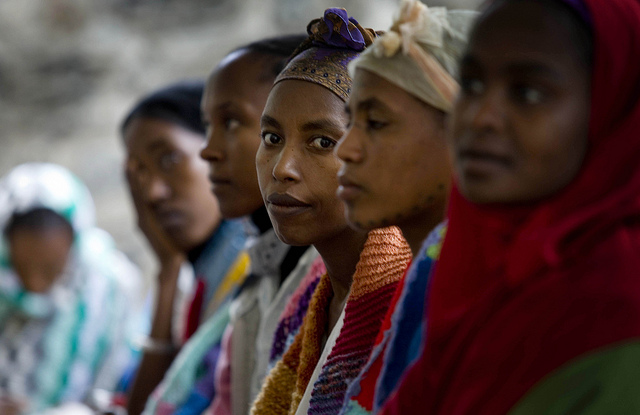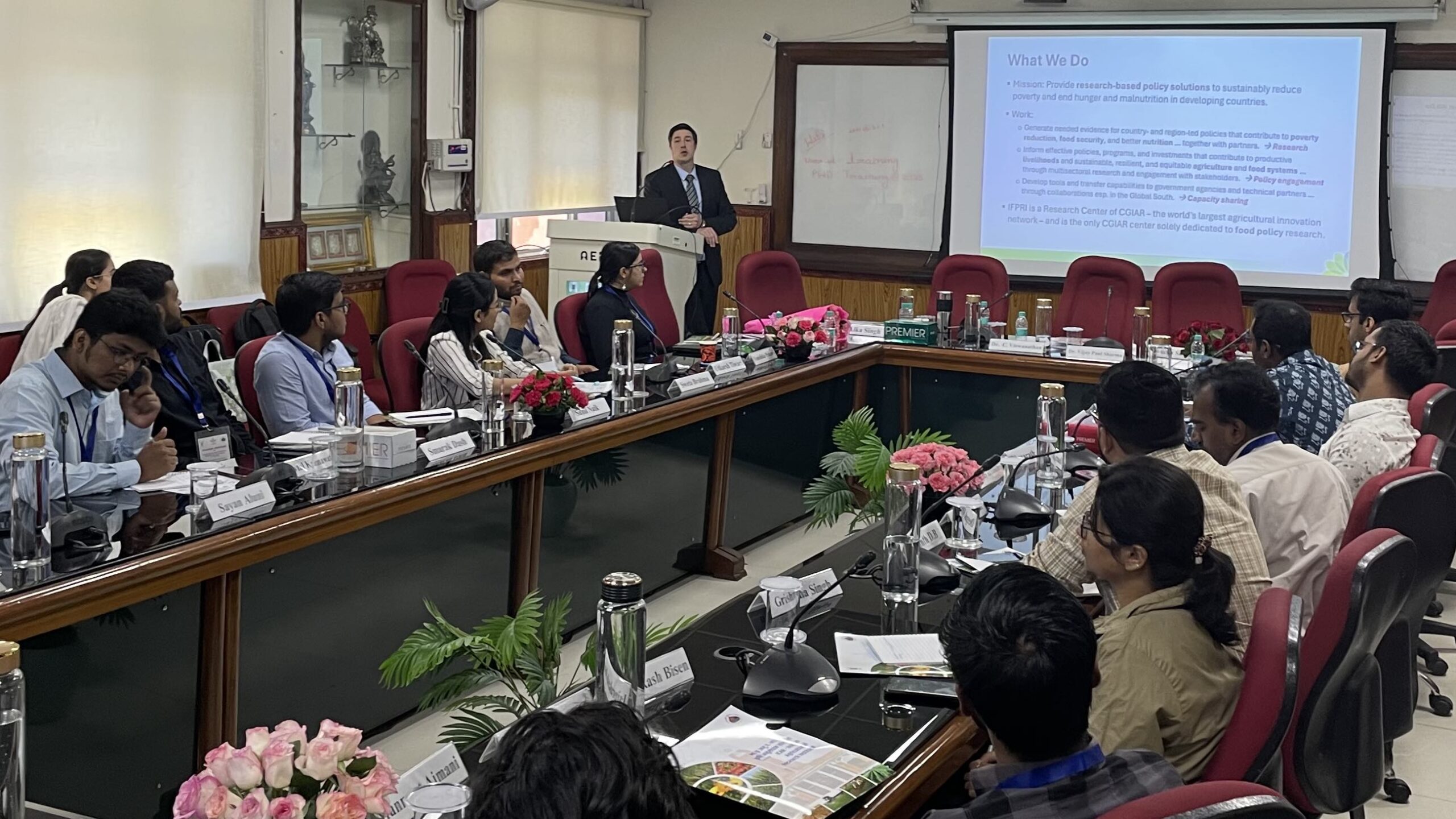The following article was jointly written by Sarah McMullan from IFPRI’s Markets, Trade, and Institutions Division and Caitlin Kieran from the CGIAR Research Program on Policies, Institutions, and Markets.
Women make up about half of the labor force in Ethiopia. While their contributions are plentiful, women and girls face discrimination when accessing —and making decisions regarding— education, agricultural information and inputs, land, and other assets to aid food production. “If women and girls are left behind, we will never develop,” said Adugna Waggra, Deputy Director General at the Ethiopian Institute of Agricultural Research (EIAR).
Waggra delivered these remarks at a workshop earlier this month that brought together people from diverse organizations to streamline joint efforts to close the gender gap in Ethiopia. The event, organized in partnership with the Ethiopian Ministry of Agriculture’s Women’s Affairs Directorate, the EIAR, the Ethiopian Agricultural Transformation Agency (ATA), IFPRI’s Research for Ethiopia’s Agriculture Policy (REAP) project, and the CGIARResearch Program on Policies, Institutions, and Markets (PIM), drew a crowd of 70 professionals all working towards gender equality in various capacities.
Change will not occur overnight, according to Waggra. “We have to gradually change the human mind,” he said, adding that development actors must be sensitive to the Ethiopian culture. Tracking change will highlight which interventions have been successful and what areas need improvement.
Over the past two decades, the Ethiopian government has started to chip away at gender inequality. An overhaul to the Family Code in 2000 provided equal rights to spouses in terms of land ownership, inheritance, and marriage. The government also introduced a requirement that land certificates include the names and photos of both husbands and wives.
Still, the laws have not triumphed over deep-seated social norms that reinforce discrimination against women—especially in agriculture. James Warner, IFPRI Research Coordinator for REAP, and Leulsegged Kasa, Research Officer for REAP, shared data analysis showing that female-headed households tend to own less land, operate smaller farms, and harvest lower yields than do male-headed households.
“It is necessary to understand the potential differential impacts of agricultural interventions on women, men, girls, and boys,” said Cheryl Doss, a development economist at Yale University and the leader of PIM’s strategic gender research.
“Gender analysis can illuminate productivity differences between male and female farmers, patterns of food consumption and expenditure, the constraints faced by individuals working within each node along a value chain, and who is exposed to shocks and their sources of vulnerability,” she said, adding that simply comparing male- and female-headed households renders women living in male-headed households—the majority of the world’s women—invisible.
Participants agreed that future data collection should pay more attention to the situation within households to better reveal the gaps between men and women. “Gender issues are complicated, interwoven with culture, economics, social issues, religion….there is a propensity to make mistakes by having a simple number. How can we improve the data that are collected?” Warner asked.
Moving forward, the ATA, with technical assistance from the IFPRI-REAP project, plans to develop gender-based agricultural indicators for the next phase of Ethiopia’s Growth and Transformation Plan (GTP-II). Such indicators are essential for monitoring progress toward achieving gender equality. As Songporne Tongruksawattana, a climate economist from the International Maize and Wheat Improvement Center (CIMMYT) stated, “It is genuinely important that agricultural research for development be gender-responsive and equitable.”







